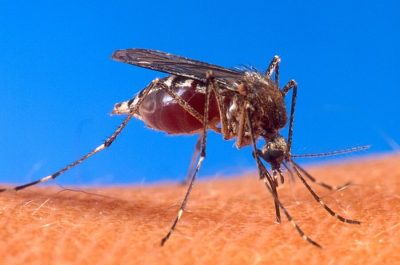Mosquito-borne Diseases: An Increasing Risk in Europe. How Can Hotels Prepare? In recent years, mosquito-borne diseases such as dengue and the West Nile virus (WNV) have increased significantly in Europe, though they remain relatively rare infections. This rise is linked to climate change, which has brought longer summers, higher temperatures, and heavier rains, creating an ideal environment for mosquitoes to thrive in areas where they previously did not. Dengue and the West Nile virus: A Real Threat The European Centre for Disease Prevention and Control (ECDC) has reported that, so far this year, there have been over 700 cases of WNV across 15 European countries, resulting in at least 51 deaths. Older individuals and those with weakened immune systems are most vulnerable to severe complications from this disease. As for dengue, its presence in Europe is increasing, especially in southern countries like Italy, France, and Spain. This is partly due to the arrival of the Asian tiger mosquito, which has settled in various parts of the continent. Climate change has expanded the areas where mosquitoes can survive, but it is not the only factor. The increase in international travel has also contributed to the spread of diseases like dengue, bringing outbreaks from regions in South America, Asia, and Africa. What Can Hotels Do to Protect Their Clients and Staff? Health and safety at tourist destinations are everyone’s responsibility, and it is necessary to proactively integrate preventative actions with strategic sense for the benefit of public health and tourism. Tourist establishments can play a significant role in preventing these diseases, especially in geographical areas where outbreaks have occurred. Some measures that can be taken include:
Avoiding stagnant water: Mosquitoes often breed in areas with stagnant water, so it is essential to check and eliminate these points. This includes pots, vases, or any container that can accumulate water. Installing mosquito nets: Equipping windows and doors, where appropriate, with mosquito nets can help prevent mosquitoes from entering rooms and other premises. Recommending the use of repellents: Advising the use of repellents when necessary, especially in outdoor areas, is a simple but effective measure. Professional pest monitoring and control: Resorting to specialized companies to implement monitoring systems and mosquito control methods when needed is crucial to ensure that the establishment remains free of these pests. Clearly, prevention cannot solely rely on the establishment as infection can occur anywhere and at any time. However, adopting these and other preventive measures can help prevent localized outbreaks in the establishment and the destination in general. Conclusion: Prevention is Key The risk of mosquito-borne diseases in Europe is an increasingly present reality, and tourist establishments must be prepared to face it. Adopting preventive measures not only protects the health of guests and staff but also enhances the hotel’s—and the destination’s—reputation as a safe and responsible place.
